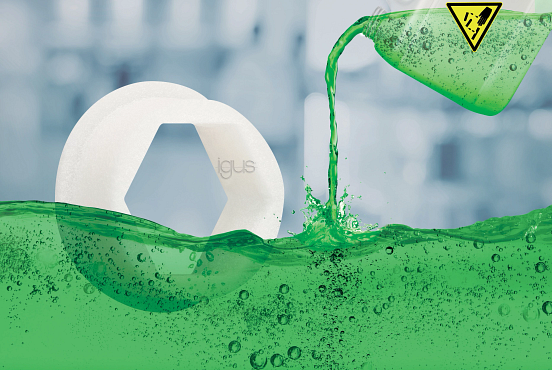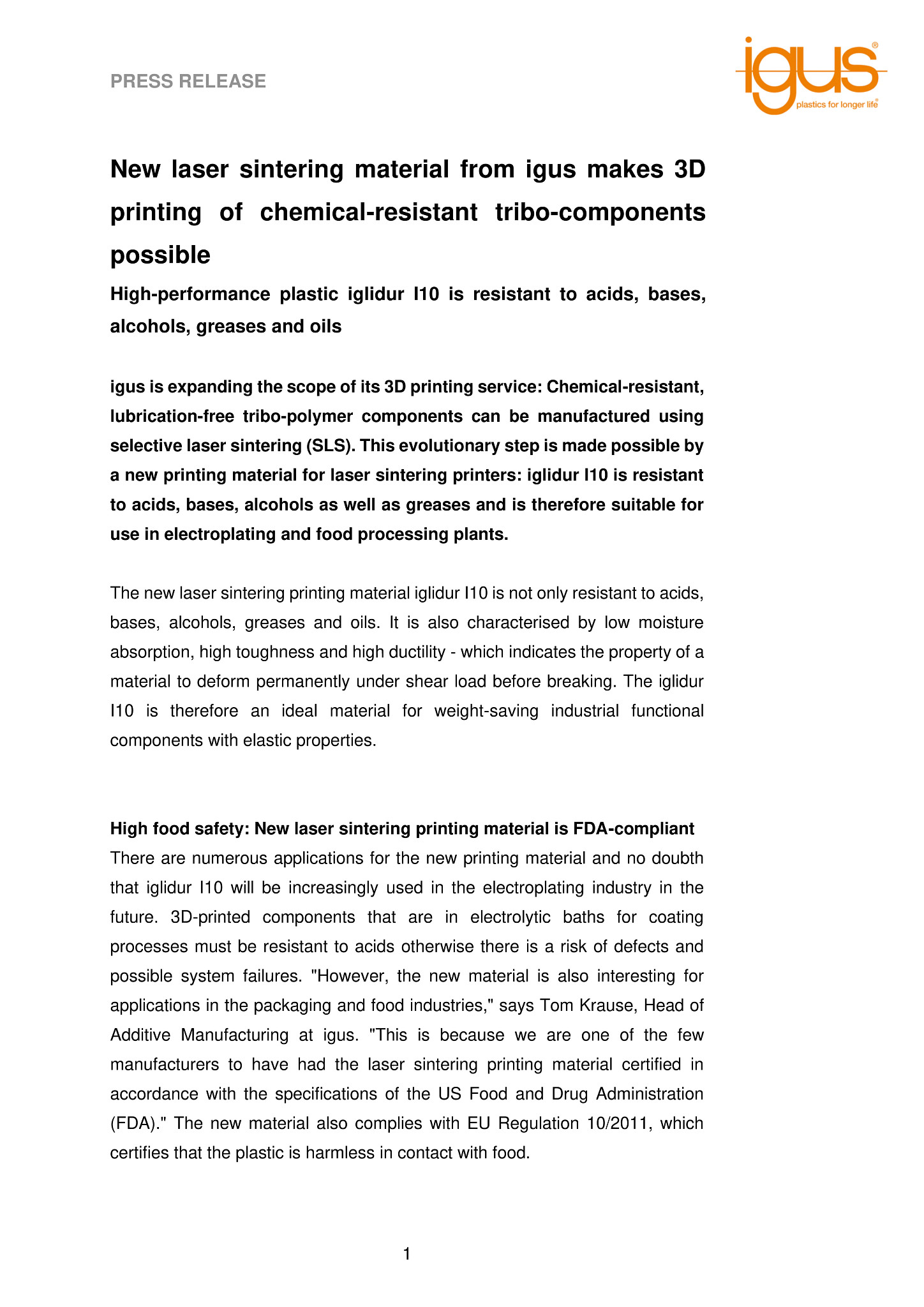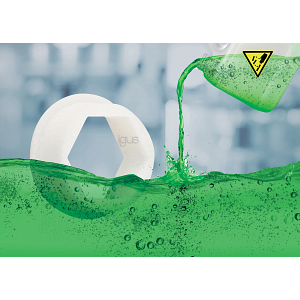New laser sintering material from igus makes 3D printing of chemical-resistant tribo-components possible
Published on: 10th January 2022
High-performance plastic iglidur I10 is resistant to acids, bases, alcohols, greases and oils

High-performance plastic iglidur I10 is resistant to acids, bases, alcohols, greases and oils
igus is expanding the scope of its 3D printing service: Chemical-resistant, lubrication-free tribo-polymer components can be manufactured using selective laser sintering (SLS). This evolutionary step is made possible by a new printing material for laser sintering printers: iglidur I10 is resistant to acids, bases, alcohols as well as greases and is therefore suitable for use in electroplating and food processing plants.
The new laser sintering printing material iglidur I10 is not only resistant to acids, bases, alcohols, greases and oils. It is also characterised by low moisture absorption, high toughness and high ductility – which indicates the property of a material to deform permanently under shear load before breaking. The iglidur I10 is therefore an ideal material for weight-saving industrial functional components with elastic properties.
High food safety: New laser sintering printing material is FDA-compliant
There are numerous applications for the new printing material and no doubth that iglidur I10 will be increasingly used in the electroplating industry in the future. 3D-printed components that are in electrolytic baths for coating processes must be resistant to acids otherwise there is a risk of defects and possible system failures. “However, the new material is also interesting for applications in the packaging and food industries,” says Tom Krause, Head of Additive Manufacturing at igus. “This is because we are one of the few manufacturers to have had the laser sintering printing material certified in accordance with the specifications of the US Food and Drug Administration (FDA).” The new material also complies with EU Regulation 10/2011, which certifies that the plastic is harmless in contact with food.
3D printing service produces industrial components within a few days
igus will also offer the new printing material in its in-house 3D printing service. Customers can upload a STEP file online with the 3D model of the desired component and select the quantity and printing material. igus will then manufactures the lubrication and maintenance-free elements using selective laser sintering. A laser fuses wafer-thin powder layers of the material on a building platform, which is lowered layer by layer. Step by step, the component is created. “The process has the advantage that it requires no tools and is significantly more cost-effective and faster than classic processes such as injection moulding. This is especially true for prototypes and small production volumes,” explains Krause. As a result, the customer could be in receipt of the 3D-printed component five days after igus receives the order.



